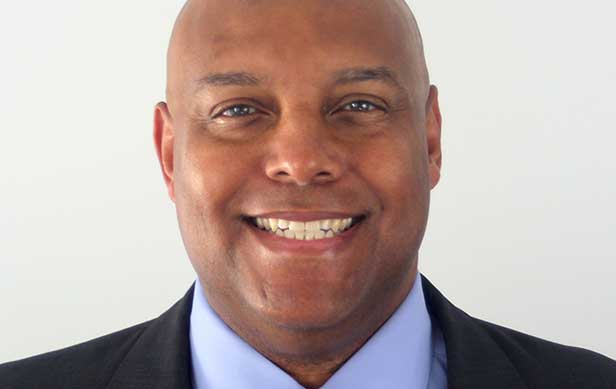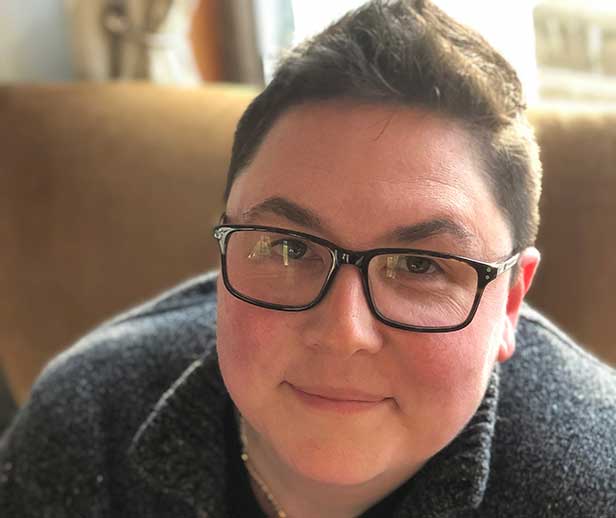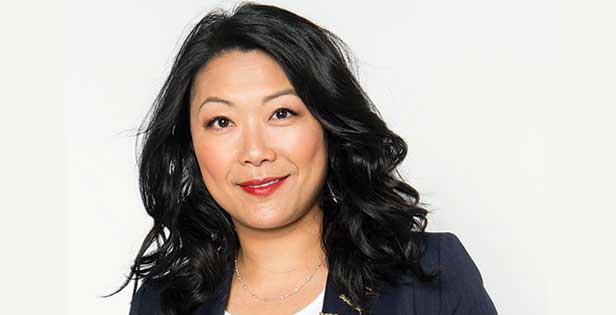News July 16, 2020
The Long Road to Supplier Diversity
Will recent outrage over racism and discrimination finally force buyers to get serious about supporting woman- and minority-owned businesses?
As Americans this summer voiced their outrage over racism, companies were loudly doing the same. On social media, McDonald’s and Nike displayed messages of support, and major brands like Airbnb, Amazon and Microsoft promised major donations. Some also agreed to reveal the racial makeup of their employees – and issued mea culpas with promises of “doing better” when they turned out to be mostly white. Others, particularly fashion companies like Anthropologie, Celine and Everlane, came under fire after former employees accused them of fostering racist cultures and work environments, sparking a round of apologies and corporate statements about transparency and policies moving forward.
Recent discourse about race and diversity also led to a renewed look at procurement practices at major companies. AT&T announced it’s on track to meet its commitment to spend $3 billion with U.S.-based Black-owned suppliers by the end of this year. And Kaiser Permanente, a health care and insurance entity headquartered in California, recently announced it will commit to spending $2 billion annually with woman- and minority-owned firms.
Simultaneously, in the promo industry, there’s been a conspicuous push to discover diverse suppliers. ASI’s Customer Service department reported a 650% monthly increase in requests for its woman- and minority-owned supplier list in June.

Ken Pulliam, vice president of business development, Binders, Inc.
“Companies have definitely inquired about our minority status over the last few weeks,” says Ken Pulliam, vice president of business development for Binders, Inc. (asi/40547), a Black-owned supplier in Charlotte, NC, that offers binders, packaging, promo products and digital engagement/recognition platforms. “We’re seeing companies make a conscious effort to address economic disparities.”
Though it’s been in the spotlight recently, “supplier diversity,” a business practice in which companies diversify their vendor base for procurement needs by working with and supporting woman- and minority-owned entities, isn’t new; it’s been in existence since the 1960s Civil Rights movement, and has grown and evolved since then.
“Companies have definitely inquired about our minority status over the last few weeks. We’re seeing companies make a conscious effort to address economic disparities.” Ken Pulliam, Binders, Inc.
Many promo end-buyers, particularly large corporations and government entities, are now required to work with diverse vendors. When distributors go after RFPs and government contracts, the client often sets annual goals for procuring goods and services from businesses with owners in under-represented categories, such as women, Blacks, Hispanics, LGBTQ+ individuals, veterans and others.

Robert Fiveash, president/co-owner of Brand Fuel
Robert Fiveash, president/co-owner of Brand Fuel (asi/145025) in Virginia Beach, VA, says his company continues to pursue business with diverse vendors, and issues a yearly report that documents the spend. “To stay relevant and socially evolved,” he says, “promo needs access to minority-owned suppliers.”
The reverberations from this summer’s protests have prompted many to ponder if America is finally serious about dismantling systemic racism. The same question is being posed about supplier diversity. Will business, including the promo industry, finally, truly make an effort to support minority-owned and run companies?
A Long History
Richard Chacon has 45 years of experience in supplier diversity, including time spent with heavy-hitters like Pacific Bell Telephone, Levi Strauss and Wells Fargo. For the last 23, he’s provided his expertise to MUFG Union Bank, a New York City-based financial institution with branches in California, Oregon and Washington.
In his role, Chacon, the Richmond, CA-based director of supplier diversity, community development and corporate social responsibility for Union Bank, is responsible for making the case for working with a diverse vendor base and advocating for them within the company. “The challenges are the same from 45 years ago, though the numbers of companies with initiatives have grown,” he says. “Years ago, diversity was ethnic at first, then it included women, then combat-disabled veterans, then all veterans, then LGBTQ+.”
The seeds of today’s programs were planted during the mid-century Civil Rights movement, when leaders like Martin Luther King Jr. called for plans to help minority-owned businesses flourish.
“When King was assassinated, he’d been working on this,” says Peter Maglaris, a now-retired supplier diversity professional in New England with more than 20 years of experience with companies such as financial services tech firm Fiserv and Prudential Financial. “He said the real road to equality isn’t through legislation; it’s through economics. Give someone a dollar and encourage them to spend it on woman- or minority-owned companies.”
But challenges remain. At the forefront is firms’ reticence to break vendor relationships they’ve established and cultivated. “Some say, ‘I’ve been working with this company for 20 years. I’m not going to change,’” says Maglaris. “If they’ve used the same vendor for years and they’re friends with the owner, they’ll resist working with someone else.”
If a company has already signed a three-year contract with a vendor, that’s no longer an opportunity to pursue, says Pulliam. “We’ll reach out to someone and they have a contract already, so we can’t talk to them anymore,” he says. “It’s hard to get the consistency.” But for large corporations and government entities, a diverse vendor base is no longer optional. Many are mandated to spend a certain percentage each year with woman- and minority-owned entities, and diverse procurement options play a huge role in many RFP processes.

Monica Maglaris, co-founder of Liberty Print Co.
“Corporations have to make sure they’re allocating their spend, or ‘diversity dollars,’ to a diverse supply chain, so they go searching for certified vendors,” says Monica Maglaris, Peter’s daughter and the co-founder of certified women- and gay-owned Liberty Print Co., a contract shop in Beacon Falls, CT. “For example, if Google wants to do Pride Month shirts, they’ll seek out a certified gay-owned company and Google counts more diversity dollars spent.”
“Tokenism is a big challenge. Sometimes companies only come to us in June because it’s Pride Month and we’re gay-owned, and that hurts.” Monica Maglaris, Liberty Print Co.
Though companies and the government have gotten more serious about supplier diversity efforts since the 1960s, there are still challenges to address, like hesitancy to change procurement partners and strategies, tokenism and a rigorous certification process for woman- and minority-owned enterprises. But supplier diversity isn’t going away, as recent discourse has made clear.

Kathy Cheng, founder and president of Redwood Classics Apparel
“'Supplier diversity’ isn’t just a buzz phrase,” says Kathy Cheng, founder and president of certified woman-owned Redwood Classics Apparel (asi/81627) in Toronto, and the Canada LGBT+ Chamber of Commerce’s 2020 Supplier Diversity Ambassador. “It’s about making the world a more equitable, fair and creative place, and supporting marginalized populations. Diverse voices and ideas make your product and company stronger.”
‘The Cherry on Top’

Memo Kahan, owner of PromoShop
Memo Kahan is the owner of Top 40 distributor PromoShop (asi/300446), a certified minority-owned firm in Los Angeles. He says his company has been active in the supplier diversity space for about 15 years.
To those companies that aren’t woman- or minority-owned, Kahan says this: Supplier diversity isn’t just a euphemism for affirmative action. A company may be woman- or minority-owned, but it doesn’t mean they’re awarded business automatically.
“There’s no free lunch,” says Kahan. “You still have to be competitive and do a good job. Companies want quality products, competitive pricing and good service – the whole package. Minority-owned gets you to the dance, but you still have to win the opportunities. It’s naïve to think otherwise.”
In his years in procurement, Peter Maglaris would advise minority-owned companies on how to approach business opportunities. “Don’t come in and say, ‘Here I am! I can give you minority dollars,’ ” he says. “Instead, say, ‘I can meet the current guy on quality, cost and delivery, and I can give you minority dollars.’ With that, people will say, ‘Wow, this is a great company to work with’ and they forget it’s minority-owned.”
Monica Maglaris says her team at Liberty Print, itself very diverse, can’t rest on their collective laurels just because of their woman- and gay-owned certifications. “For a long time, we’ve been pushed out of the arena of ideas and overlooked,” she says. “Now, the pie is getting larger, but being certified is just the cherry on top.”
Not surprisingly, supplier diversity efforts have been marred in some corners by less-than-honest business entities. For one large project, Liberty Print spent several months in research and sampling, only to learn that the client had used Liberty’s certifications as leverage to win the government contract. To add insult to injury, they ultimately gave the business to a male-owned company for fulfillment.
Maglaris, the former chair of supplier diversity for the Connecticut Gay and Lesbian Chamber (CTGLC), says she had the option in that instance to report the client to the Government Accountability Office, which could have barred them from working with the government in the future. But after further consideration, she decided to cut her losses and move on, with a hard lesson learned.
“Tokenism is a big challenge,” she says. “Sometimes companies only come to us in June because it’s Pride Month and we’re gay-owned, and that hurts. Every day, we put everything we have into what we do. We jump through hoops to get the work. I don’t understand when clients say, ‘Thank you! See you next year!’ We work all year round.”
Pulliam prefers speaking about his company with a focus on its diverse mix of products and services and the customer experience they provide, not its minority-owned status.
“That’s the worst way to start a conversation with us,” he says. “We want to build this business based on our merits. We actually have a value proposition that translates into a competitive company. We don’t consider being minority-owned a differentiator. Our differentiators are that we make our own binders and packaging, and we offer an employee engagement portal for clients. We offer a very unique mix. You don’t want to base your entire relationship on being minority-owned because another one could pop up.”
Distributors looking for woman- and minority-owned suppliers and corporations themselves seeking to spend more diversity dollars should be careful to avoid inauthenticity (potentially a huge brand misfire) by actually getting involved with the community and learning about their real concerns, says Kahan. It’s more than a “check the box” exercise.
“Saying you support minorities and actually supporting them are two different things,” he says. “Are companies supporting good in their community, or is it just doing what clients want? Get involved in the issues that matter to minorities, otherwise it’s a farce. It shouldn’t be the flavor of the month. Go deeper, so it’s not just a classification. It can really backfire and catch up to you if it’s not authentic.”
And that starts from the highest echelons of a company, says Peter Maglaris. “Diverse procurement has to be baked into the bonus and reporting structures,” he says. “It can’t just be, ‘It’s Pride Month, so let’s use an LGBTQ+ company to show our support.’”
Certification Challenges
Official certification as woman- and/or minority-owned reinforces a company’s status and opens up business opportunities. But it’s also a lengthy process that costs money and requires physical location visits and analysis of returns and books. It’s no wonder that many companies hesitate to begin the process.
But there’s a reason for the long and deep dive: over the years, management teams showed they weren’t above faking their minority status. “They’d say they were African-American-owned, and they weren’t,” says Chacon. “Maybe there was an African-American board member, but he or she didn’t manage the day to day and didn’t sign checks.”
Peter Maglaris remembers instances where a company looking to work with a “woman-owned” vendor would just create one. “They’d say, ‘Let’s buy the owner’s wife a professional outfit she can wear to the office when they come to take a look at the company, so it looks like she owns it,’” says Maglaris. “Another company kept introducing a different African-American man as president at their board meetings. We stopped doing business with them.”
But the realities of the certification process mean that companies often have to be persuaded that it’s worth their resources. In her time with the CTGLC, Monica Maglaris contended with this obstacle frequently. “Some companies might not look at themselves as minority-owned, and it costs money,” she says. “It can be an invasive process, both financially and personally. But my company has been put through the gantlet, and many companies require certification to count diversity money.”
In recent weeks, the management team at Binders, Inc. has been having discussions about becoming officially certified as minority-owned. They had taken initial steps earlier this year, before the coronavirus put things on hold. Now, they’re talking seriously about it again. “We never had to generate business based on being minority-owned,” says Pulliam. “Clients know it’s minority spend, and we compete on our merits. But certification does lead to bigger contracts and more opportunities. It makes everyone’s pillow softer at night.”

Ethan King, co-founder and CEO of Zeus’ Closet
Zeus’ Closet (asi/365907) in Atlanta is Black- and woman-owned, says co-founder and CEO Ethan King, who owns the company with his wife, Monica Allen. They have two retail locations, and also manage stuff4GREEKS, an e-commerce store that specializes in Greek apparel for more than 500 fraternal organizations across the country. They’re not certified minority-owned or woman-owned, and King says they haven’t felt compelled to go through the process yet, though other entrepreneurs have suggested they consider it.
“I want to be awarded because of merit and value propositions, not skin color or gender,” he says. “People weren’t even sure we were minority-owned until recent weeks, when they started asking. Before George Floyd, we were asked maybe once a month. Now it’s twice a day. But it’s not at the forefront of what we do. We want people to look at the quality of the work and testimonials. Whether it’s B2B or B2C, we’re still people to people.”
The Path Forward
So, where do we go from here? Leaders of woman- and minority-owned businesses say a renewed commitment to them – to help them showcase their companies’ differentiators, as well as to lend support to community concerns – would be a huge step forward.
“People have the power to make sure everyone has a healthy economy,” says Monica Maglaris. “Hopefully, companies celebrate diversity all the time, not just during Black History or Pride Month. People pay attention to the business community. It’s not about pandering or charity, and it’s not just about quotas and allocations. Every business is worth more than that.”
The vast majority of Fortune 500 companies have supplier diversity programs, says Cheng. That means the promo industry needs to get serious about it too. “How is the promo industry going to be a solutions provider to corporate end-users,” she asks, “if we aren’t adopting a diversified supply chain strategy ourselves?”
Fiveash adds that, while everyone – companies and the general public – have started to look at things differently, it’s still a sensitive subject laden with potential confusion and misinterpretation. Firms may quietly make decisions to buy more from diverse vendors, but whether they feel comfortable enough to wade into the discourse publicly for supplier diversity is another matter. “No one wants to stick their neck out,” he says. “It’s hard to have honest conversations because it’s full of minefields. But without woman- and minority-owned suppliers, the biggest customers will bypass [distributors] in three seconds. Having conversations as well as pushing for relevant products from minority-owned suppliers will help to drive change.”
Lasting change will mean more than just a single inquiry or order. Pulliam, for one, says he’d like the current discourse to lead to more contracts for his company. “I don’t want to make long-term business decisions based on a short-term spike in business,” he says. “Is this a temporary relationship or the start of a long-term partnership? Lock me into a three-year contract so I can make better decisions.”
It’s going to be doubly important to commit to Black-owned companies in particular, which have been hit extremely hard by the COVID-19 pandemic. In just one recent example, a study by the New York City Comptroller’s Office found that 85% of woman- and minority-owned companies in the city’s five boroughs believe they won’t make it to the end of the year.
“That hurts my heart, that they may go out of business,” Pulliam says. “They weren’t well capitalized. I hope they can come back, because minority-owned firms make sure business isn’t dominated by a few companies.”
We tend to have short memories, says King. While important conversations are happening, it’s only a matter of time before our collective focus moves to the next crisis. Meanwhile, to be successful, entrepreneurs need to be laser-focused on long-term growth. “We have to deliver on our promises,” he says. “Then we’ll keep the business for years to come because we’re a great company to work with, not just because we’re minority-owned.”
ASI’s Woman- and Minority-Owned Supplier List
Are you interested in diversifying your vendor base, or are you a woman- or minority-owned company that wants to show up in distributors’ search results? ESP’s Advanced Search feature includes a “minority-owned” filter to show all listed suppliers. You can also contact ASI’s Customer Service team at (800) 546-1350 x1 and customerservice@asicentral.com for the complete list. The following designations are available:
• Woman
• Veteran
• LGBTQ
• Asian
• Hispanic
• African-American
• Native American
• Disabled
• Employee Stock Ownership Plan
• Small and Disadvantaged Please note that the information is self-reported by each supplier.
Looking to Get Certified?
Here are just a few of the organizations that offer formal certification processes for woman- and minority-owned firms:
• Women’s Business Enterprise National Council (WBENC)
• National LGBT Chamber of Commerce (NGLCC)
• National Minority Supplier Development Council (NMSDC)
• U.S. Department of Veterans Affairs (VA)
